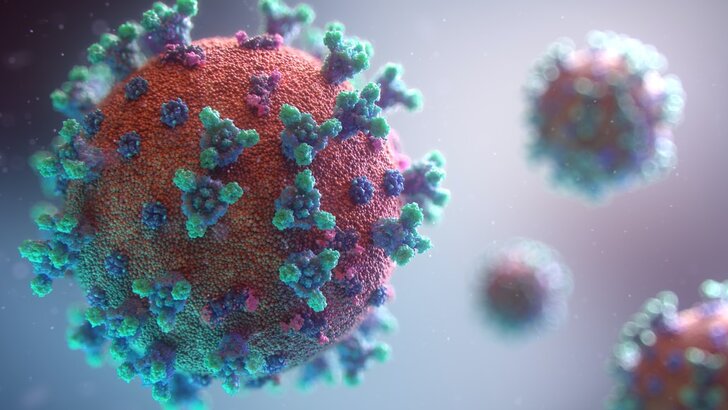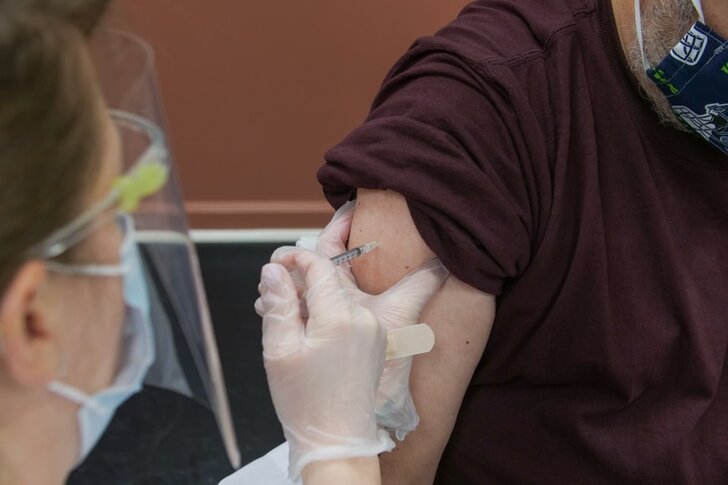
Hepatitis A Outbreak in New Jersey. What does this really mean?

There can’t be a scarier moment than when you realize that while you were leisurely having coffee at your favorite spot, there was an unaware carrier of Hepatitis A serving you! That’s probably what most people who visited a particular Starbucks outlet in New Jersey between November 4 and 13, 2021, went through when reports of a Hepatitis A outbreak at the café surfaced recently.
According to a statement released by the Health Department at Camden County, during early and mid-November 2021, there was a Hepatitis A outbreak at the New Jersey outlet of Starbucks (1490 Blackwood Clementon Road). The department discovered this when they were informed that an employee at the café had worked while he/she was carrying the infection. As soon as it came to light though, the outlet was immediately closed, and the entire staff was asked to get vaccinated.

Fusion Medical Animation/Unsplash | During early and mid-November 2021, there was a Hepatitis A outbreak at the New Jersey outlet of Starbucks
Now although the situation is currently under control, the county’s health department has emphasized that anyone who believes he/she was exposed to the infection during this period should get a Hepatitis A vaccine at the earliest. That being said, if one has already been immunized against Hepatitis A in the past, there’s no need for another dose.
Amidst all this mayhem, if you’re under a cloud of doubt regarding Hepatitis A and how contagious it really is, this article will help you find the answers.
What is Hepatitis A?
Hepatitis A is an extremely infectious and quick-spreading liver infection caused by the HAV (Hepatitis A virus). Unlike its B and C variants, this type isn’t responsible for chronic liver disease, but it can cause inflammation and affect the liver’s ability to function normally.
Professor of Infectious Diseases at Buffalo University, NY, Dr. Thoman Russo, says that while most people recover from a Hepatitis A infection, some may develop severe variations of the condition, and rarely, they may even end up suffering from a complete hepatic failure. Death can also be a result of hepatitis A, the CDC says, but it’s more likely to happen with the elderly or with people already suffering from other chronic liver conditions.
How does Hepatitis a spread?
Hepatitis A is mainly spread through the fecal-oral route, that is, when an unvaccinated person is exposed to the bodily fluids of an infected person. Simply put, ingesting infected water or food will result in a spread. According to the CDC, Hepatitis A spreads from caring for a sick person or even from intimate activities.

Vlada Karpovich/Pexels | According to the CDC, Hepatitis A spreads from caring for a sick person or even from intimate activities
What are the symptoms?
After two weeks or so, an infected person tends to show the following signs:
- Sudden nausea and vomiting
- Abdominal pain
- Fatigue
- Loss of appetite
- Intense itching
- Light coloured stool or dark urine
- Jaundice
- Fever
- Joint pain
Is it curable?
It’s very unfortunate to say that no medication has proved to fully cure Hepatitis A. The only essentials that the affected can depend upon are proper hydration, supportive care, and hourly monitoring. However, researchers believe that the virus can be contained with immunoglobulin or vaccination. It’s even believed that most people with Hepatitis A tend to improve with time. Doctors recommend keeping a check on bowel movements.

Steven Cornfield/Unsplash | Researchers believe that the virus can be contained with immunoglobulin or vaccination
Wrapping it up
No matter what their kind is, diseases always terrify us. But should we crumple ourselves up, turn off all the connections with the outer world, and live in constant fear of the end? Absolutely not! The tunnel might be long, but there’s always light at the end of it.
More inMedicare
-
`
Are Popular Diet Trends Actually Good for Your Heart?
Diet trends grab headlines every year, promising everything from glowing skin to dramatic weight loss. But when it comes to the...
July 30, 2025 -
`
Why Are Men Taller Than Women? New Genetic Study Finds Clue
For centuries, the average height difference between men and women has been noticeable—men generally stand about five inches taller. While environment...
July 23, 2025 -
`
How Upcycled Beauty Ingredients Are Reshaping the Industry’s Future
The beauty industry is going through a big shift — and it’s not just about trends. As waste problems grow and...
July 17, 2025 -
`
A Look Inside Faith Kipyegon’s Groundbreaking Mile Run in Paris
Last week in Paris, Faith Kipyegon returned to a place she knows well: Stade Sébastien Charléty. But this time, she wasn’t...
July 9, 2025 -
`
Dairy Is Making a Major Comeback — And Health Shoppers Are Loving It
Just a few years ago, dairy sat quietly in the back seat while plant-based alternatives took the spotlight. Now, it’s stepping...
July 4, 2025 -
`
Does Aging Cause Dental Problems?
Aging doesn’t automatically mean losing teeth or developing gum disease. In fact, older adults today are holding onto more of their...
June 25, 2025 -
`
How Upcycled Ingredients Are Shaping the Future of Cosmetics
What used to end up in bins or compost heaps is now finding a new life inside skincare bottles and beauty...
June 18, 2025 -
`
Rock Legend Rod Stewart Trains to Break Sprint Record at 80
Age isn’t slowing Rod Stewart down. Known worldwide for his legendary voice, stadium-filling tours, and timeless hits like “Maggie May”, the...
June 11, 2025 -
`
The Truth Behind Detox Diets – Health Boost or Risky Trend?
It’s hard to scroll through your feed without seeing someone sipping green juice with promises of instant energy, glowing skin, and...
June 3, 2025














You must be logged in to post a comment Login